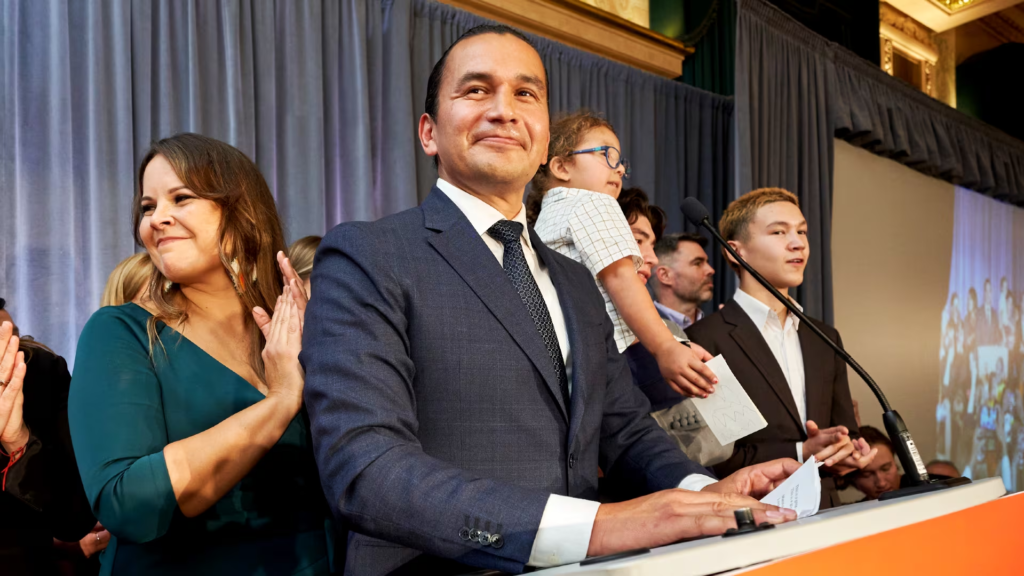In this week’s GME3 we’re looking at a new mandate for expanding gambling operations in Manitoba, more feedback on Canada’s new federal privacy legislation, and the introduction of a new digital services tax on multinational corporations operating in Canada. Read the full stories below!
Gambling
Manitoba Puts the “Party” in “NDP”
Manitoba’s newly-elected NDP government has been busy since taking power after the historic election earlier this October. In a mandate letter published earlier this week, the NDP pledged to open more publicly-owned liquor stores (a big win) and roll back the ban on gambling expansion in Manitoba, which was put on indefinite pause by the former Conservative government in 2018.
The Manitoba Liquor & Lotteries Corporation (MBLL) has been instructed to lift the ban slowly, with the goal of “economic reconciliation and local economic development while maintaining MBLL’s commitment to supporting the communities they serve.” Despite the 2016 report claiming that the Manitoba gaming market was “oversupplied,” the provincial government has received several requests to lift the pause over the past few years.
The mandate extends to igaming as well – Glen Simard, the minister in charge of the MBLL, wants to drive more traffic to PlayNow.com (the exclusive regulated igaming platform in Manitoba) as opposed to grey-market, or even illegal, alternatives. Marketing initiatives around PlayNow have already been ramped up over the past year, emphasizing that gaming through the province’s official platform will lead to lost funds being reinvested back into public works.
The mandate letter also calls for:
Increased staffing for the MBLL;
Increased pay for staff, and;
Modernizing the MBLL’s IT infrastructure to better support liquor and gambling expansion.
Notably, there’s no sign that the new NDP government will be moving to open up Manitoba’s registered igaming regime in the way that Ontario has. For now, the province seems to want to focus on expanding the user base of PlayNow.com instead, but from our perspective, any expansion of Manitoba’s gaming market is welcome.
Media
Tribunal Trouble
Canadian Parliament is continuing the process of enacting Bill C-27 (the Digital Charter Implementation Act, 2022), which we’ve written about a few times previously.
As part of this process, privacy commissioners from Alberta, British Columbia, and Quebec convened before the House of Commons to argue that the proposed plan to create a privacy tribunal to hear appeals of the national privacy commissioner’s decisions would be a “waste of time and money.” They instead proposed that objections and appeals should just go directly to court. This is how the system currently operates nationally and in the provinces that have relevant privacy legislation.
The idea of a tribunal was first introduced as a safeguard against the increased powers granted to the national privacy commissioner by the Consumer Protection Privacy Act (CPPA). Under the CPPA, the privacy commissioner would be able to issue compliance orders and recommend multi-million dollar fines for violations of the act. The tribunal would, theoretically, act as a check against this expanded mandate. But, under the CPPA, the tribunal’s decisions would be open to appeal in Federal Court.
Essentially, the provincial privacy commissioners are arguing that the creation of a tribunal will only serve to further slow the judicial process by inserting an unnecessary middle-man in the appeal system. Further, the idea raises concerns about taking power away from the courts and putting it in the hands of the tribunal instead. B.C.’s commissioner, Michael McEvoy, put it succinctly when he said that Bill C-27 puts too much power in “the hands of a third party that would not be in a position to coordinate matters with other authorities.”
This is only the latest feedback that Parliament has received over Bill C-27, and clearly, a significant amount of work remains to be done before Canada’s new privacy legislation is ready to be passed. Hearings on Bill C-27 will resume in the New Year.
Entertainment
The Other Kind of DST
Beginning on January 1, 2024, Canada will be imposing a 3% digital services tax, or DST (not daylight saving time), on revenue earned from Canadian consumers by large businesses. This will affect Canadian and international businesses alike.
The goal of the DST is to ensure that large international corporations that operate and generate revenue in Canada are required to contribute to the financial well-being of the country. However, with the vast majority of these companies being based out of the U.S., there has been some concern that we’re about to upset our neighbours to the south. The American ambassador David Cohen even warned there would be a “big fight” over the proposed tax. Prime Minister Trudeau seems prepared to defend the DST but maintains that President Biden has not raised any concerns over the DST personally.
The DST originated as part of the Liberal Party’s 2019 election platform but was delayed until 2024 to give more time for an international taxation plan to be formed. The first version of this plan was drafted earlier this year during the G20 and Organization for Economic Co-operation and Development (OECD) but has yet to be ratified by the U.S.
The Canadian government has made the bold decision to move forward with its plan for the DST, despite pushback from American interests. The DST will be retroactive to income from activities in Canada dating back to January 2022. However, the legislation that would implement the tax remains to be passed through the Canadian Parliament. We’ll be keeping our eyes on this one in the New Year as well, so make sure to follow GME Law on LinkedIn for future updates!
GME Law is Jack Tadman, Zack Pearlstein, Lindsay Anderson, and Will Sarwer-Foner Androsoff. Jack’s practice has focused exclusively on gaming law since he was an articling student in 2010, acting for the usual players in the gaming and quasi-gaming space. Zack joined Jack in September 2022. In addition to collaborating with Jack, and with a keen interest in privacy law, Zack brings a practice focused on issues unique to social media, influencer marketing, and video gaming. Lindsay is the most recent addition to the team, bringing her experience as a negotiator and contracts attorney, specializing in commercial technology, SaaS services, and data privacy.
At our firm, we are enthusiastic about aiding players in the gaming space, including sports leagues, media companies, advertisers, and more. Our specialized knowledge in these industries allows us to provide tailored solutions to our clients’ unique legal needs. Reach out to us HERE or contact Jack directly at jack@gmelawyers.com if you want to learn more!
Check out some of our previous editions of the GME3 HERE and HERE, and be sure to follow us on LinkedIn to be notified of new posts, keep up to date with industry news, and more!




